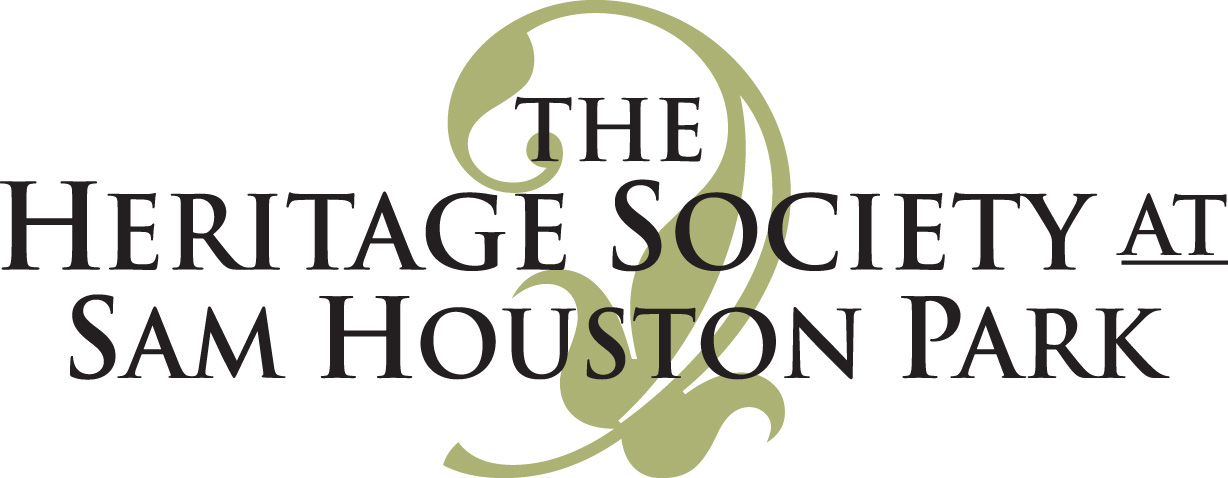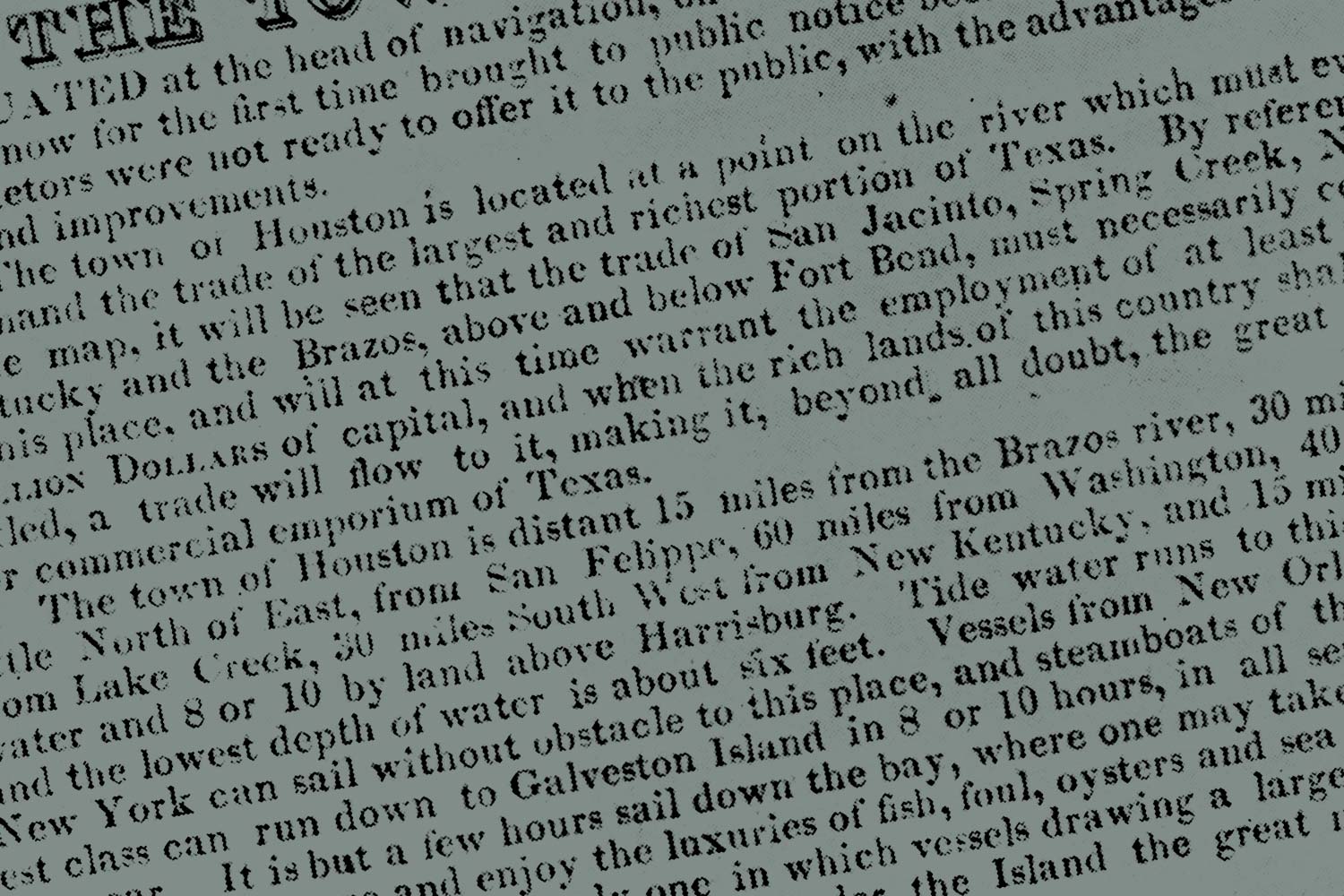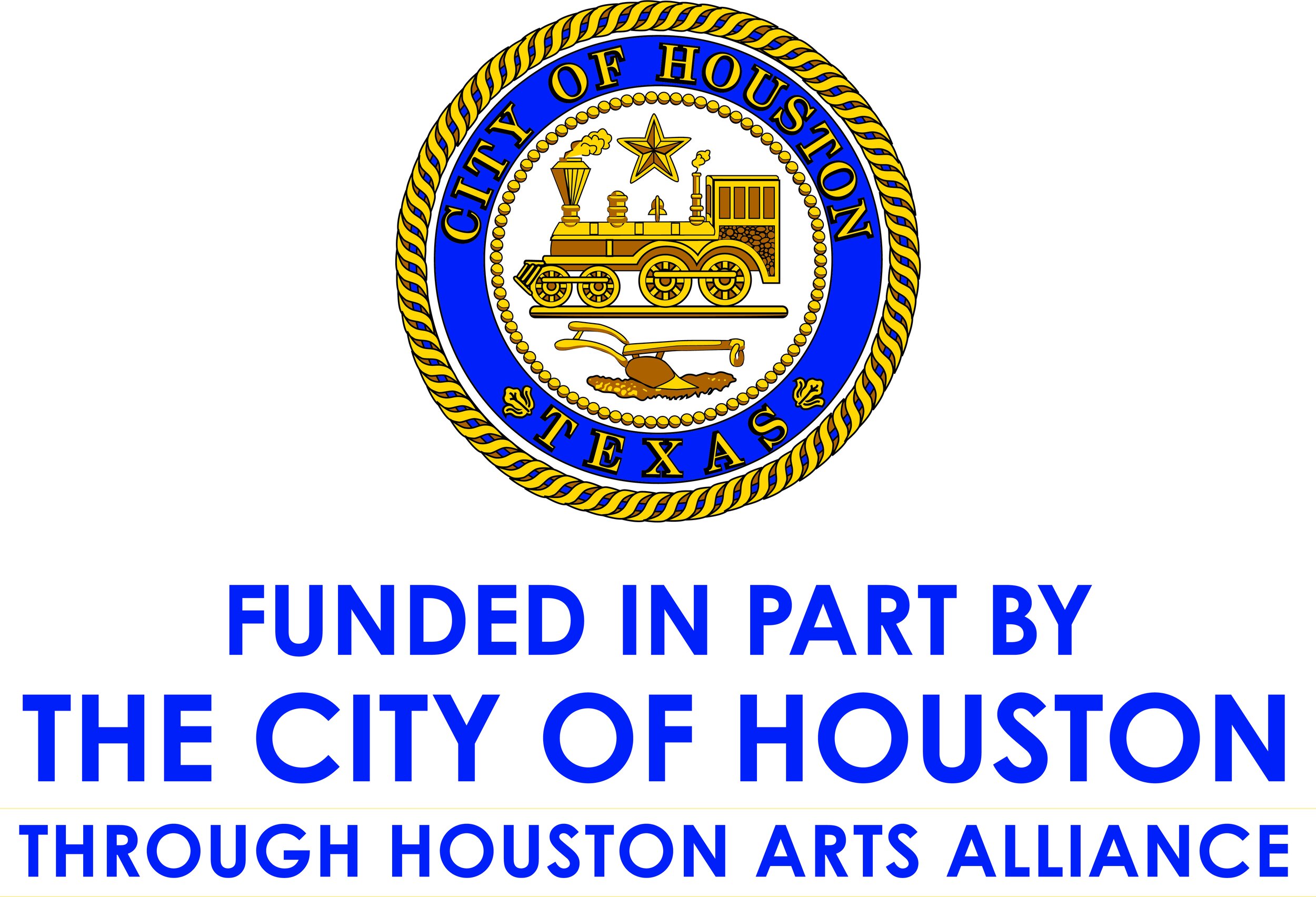September 17 is Citizenship (or Constitution) Day, celebrating the ratification of the U.S. Constitution.
With so much discussion these days about immigration and citizenship, Citizenship Day offers the chance to think of a time when new citizens from around the world were eagerly sought, as in Houston’s earliest days.
So how did our own city by the bayou build what would become one of the most culturally diverse populations in the nation? With newspaper ads appearing coast to coast making exaggerations, of course!
Immigrants grasp the (false) promise of Houston
The 1836 ads targeting immigrants claimed that Houston was located on a “river” and boasted that there was “no place more healthy.” Citizens had “an abundance of excellent spring water” and enjoyed “the sea breeze in all its freshness.”
In addition, the site was “beautifully elevated” and sat “in the heart or centre of population.”
The truth? The “river” was a shallow, overgrown bayou with a water depth of six feet, swarmed by mosquitoes carrying deadly yellow fever. There was spring water, but the town’s first water supply came from the then-foul bayou. And of course, the location was a scant fifty feet above sea level and a good fifty miles inland from the sea.
“I find this the most miserable place in the world,” wrote lawmaker Kelsey H. Douglass.
Nevertheless, from the beginning of 1837, when Houston had 12 residents and one log cabin, the town had 1,500 citizens and 100 houses just four months later. It was, as the Houston Chronicle called it recently, “a frontier boomtown with a reputation for drunkenness, brawling, prostitution and mud.”
Learn how the Allen brothers promoted Houston in the 1800's as a beautiful city with lush green meadows, rolling hills and sparkling rivers to attract immigrants.
Welcoming the world
The ads did their stuff, however, attracting immigrants from all over the world. Frenchman Eugene Pillot opened one of the first opera houses in Houston. W.L. Foley traveled from Ireland to become the proprietor of a dry goods store, later financing his nephews’ ambitions to immigrate and open what would become the legendary Foley Bros. department store. And William Marsh Rice came penniless from Massachusetts but managed to start a small mercantile business; by 1860 he was reckoned the second wealthiest man in Texas, having amassed a fortune of $750,000.
Today of course, Houston is the fourth most populous city in America, trailing only New York, Los Angeles, and Chicago. It is also one of the nation’s most culturally diverse cities, with more than 145 languages spoken and 92 countries having consular offices here, the third largest consular corps in the U.S.
The culturally diverse city also boasts more than 11,000 restaurants, a Theater District second only to New York City, and more than 500 cultural, visual, and performing arts organizations, 90 of which are devoted to multicultural and minority arts. What’s more, we are one of just five U.S. cities offering year-round resident companies in all major performing arts.
And yes, true to our Texan roots, we are home to the Houston Livestock Show and Rodeo, the world’s largest, attracting more than 2.2 million visitors each year.
Small wonder that in 2015 Houston was ranked among the top places to visit by the Boston Globe, Travel & Leisure, and Conde Nast Traveler.
Houston – do we have a problem? Not any more…
PHOTO CREDIT: GEORGE FUERMANN PHOTOGRAPHIC COLLECTION, UNIVERSITY OF HOUSTON LIBRARIES
Foley Bros. was founded by Pat and Mike Foley in 1902. Their proceeds on the first day totaled $129.27.
The stories of Texas' early beginnings are outlandish. Learn how Governor Domingo Goveo lost his cook in Mexico City after the cook heard the Indians would eat him if he arrived in Texas.
Explore Your Heritage
Enter your email address below to make sure you receive emails from The Heritage Society conveying our latest news, announcements of special events and celebrations, limited-time discounts, and more.
Don’t neglect your Heritage; sign up today!










